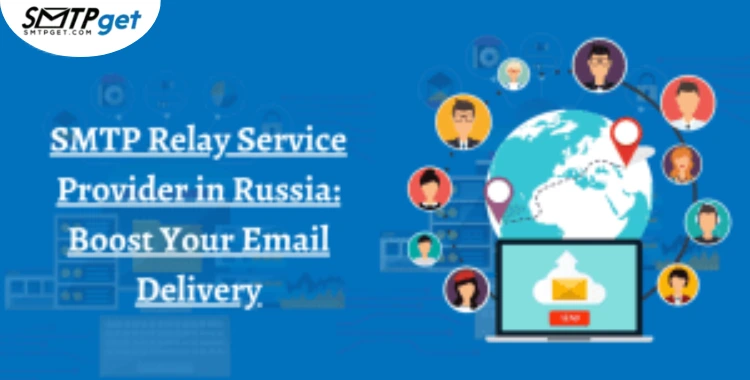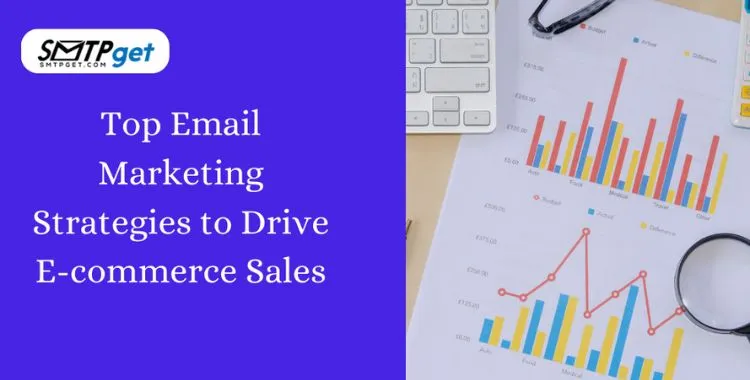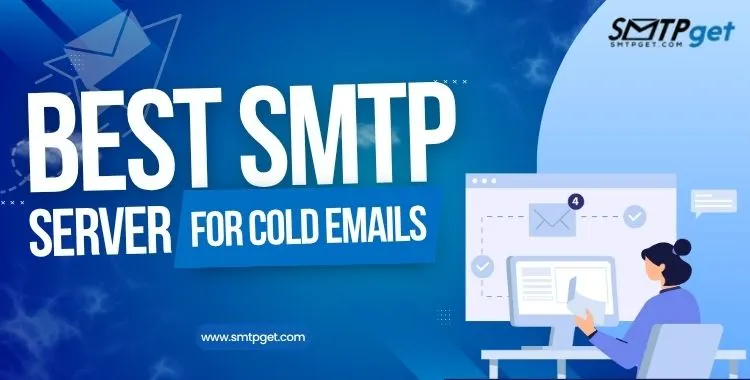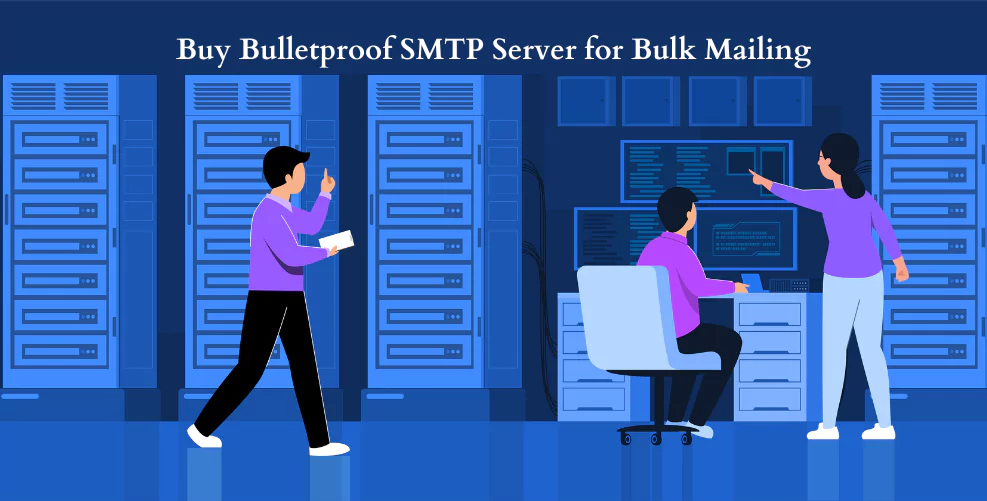Since you can customize your email based on the personality of the user, email marketing seems to be a powerful marketing medium. There are many publications and experts available online who can advise you on how to create a sales email, marketing email, promotional email, or newsletter, including the technology for sending such emails.
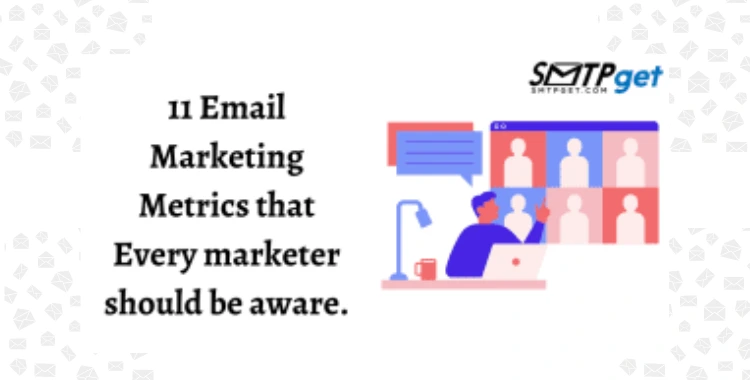
But is it all about sending emails as a marketer? Theme Optimization? Did you make it mobile-friendly? Is that all you need? At a time when information marketing is more important than ever, you need to understand what data you need to measure for your emails. Measuring the email marketing metrics of your efforts is critical to their success.
Our Pricing:
| Pricing | Cheapest Plan | Standard Plan | Professional Plan |
| SMTP Server Services | $110 | $165 | $220 |
| Bulk Email Server | $50 | $145 | $225 |
| Bulk Email Service | $30 | $110 | $220 |
What are Email Marketing KPIs?
The various approaches to monitoring the effectiveness of your email marketing initiatives are referred to as Key Performance Indicators, also known as email marketing KPIs.
There are various indicators that you can track when sending email campaigns. This is mainly determined by who sees your email and what they do next. On the other hand, email marketing KPIs can reveal a lot more.
Any great metrics for email marketing like STMPget, and software for SMTP service providers should provide information about important KPIs. You can optimize your mass email marketing campaigns and get better results from every email sent by tracking these marketing KPIs.
How important are KPIs for email marketing?
Understanding the right KPI for email marketing is critical to determining the effectiveness of your email campaigns and how to improve them.
These metrics help you evaluate campaign success and uncover trends in your users and their activity. That way, you can change your approach with each additional email campaign you create.
If you don’t track email marketing KPIs and mindlessly design email campaigns that never beat the latest, you will be left in the dark. You can continuously improve your bulk mail server by tracking the right KPIs and changing your plan to achieve them.
Open course
Open rate is a key email marketing metric that shows the percentage of your users who open your emails. Increase your open rate by improving your topics.
The average opening rate across all markets is 22.8 percent. You should aim for at least 20% to 30% CTR. If yours is lower, consider segmenting your list and adjusting the types of emails you send, and this can help increase engagement.
Buy SMTP server to calculate Total Opens vs. Unique Opening. This is another important KPI to track, and it tells us how many people have opened your email multiple times.
Do you know the power of personalization in email marketing?
Click Rate (CTR)-
Your click-through rate (CTR) is the percentage of people who click on the links in your emails, known as your click-through rate (CTR). A high CTR shows that your email is interesting. Increase your CTR by including calls to action, photos or videos that are relevant to your content.
Unique Clicks vs. Unique Open Rate shows how many unique users clicked on your email content versus how many unique users opened your email. The average CTR for email marketing is 3.5 percent.
Since many emails contain multiple links, the click-through rate is determined not only by the number of links that are clicked, but also by the position of those links.
Click-through rate You can determine whether all clicks are on the visible portion of the page or below the visible portion of the page. Knowing your click-through rate can help you improve email content and calls to action.
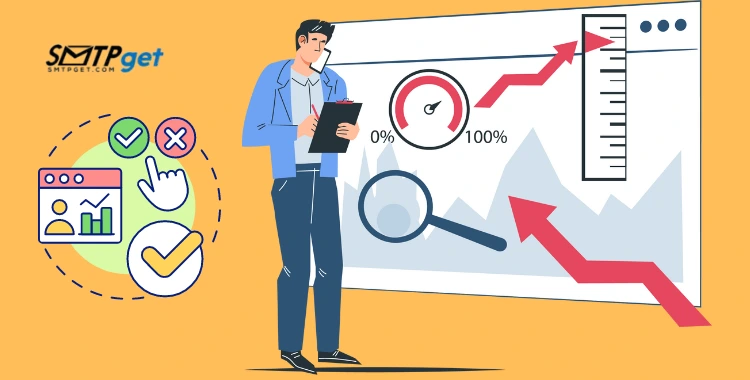
Unsubscribe Rate –
Your unsubscribe rate is the percentage of people who unsubscribe from the mailing list. The average unsubscribe rate is 0.122 percent, and it’s important to monitor this metric regularly.
If your unsubscribe rate is too high, you need to reconsider who you are emailing and what you are sending them. You should also track Customers vs. Unsubscribe to see how your users grow compared to unsubscribing.
Spam results
Every marketer should know their spam score. There are many email marketing tricks to determine spam scores depending on the content of your emails, no. links, trigger words, and link types. The higher the spam score, the more likely your email will be filtered as spam.
The number of people marking your email as spam or junk is the spam/complaint rate. This happens mainly because your communication is irrelevant to them or seems too promotional. Make it a habit to assess your content’s spam score before sending emails to reduce your spam levels.
Dropout rate –
This indicator shows the number of undelivered emails in your customers’ inboxes. Waste comes in two varieties:
- Soft bounces occur when a user’s inbox is full or their server is down.
- Hard bounces occur when the recipient’s email address is invalid.
Monitoring your mailing list and eliminating bounce addresses will help keep your bounce rates down. Dropping out of school can have a devastating impact on the deliverability of your emails. Monitor deliverability (delivery rate) to see how many emails are reaching your users’ inboxes, track deliverability (delivery rate).
Do you know what is the best SMTP server for small business?
List growth rate-
List growth rate shows how much an email list has grown in a year or month.
You can grow your email list by giving away free ebooks or offering discounts and promotions in exchange for signing up.
Take note of your unengaged subscribers who subscribe but never reply or even check your email. Your listing can negatively impact your shipping rates. Remove unengaged people from your email list while monitoring your list growth rate.
Referral Course –
Your email sharing rate is your forwarding rate, which shows how many people have forwarded your email. When someone shares your email, you reach a new group of people if you want to make it easy for others to share your email along with share buttons and social icons at the very bottom.
With an SMTP relay service provider, you can also track how many people have shared your email with share buttons and social network icons. You can determine what this audience finds most interesting by observing which emails are shared (and shared) the most.
Device Unlock Rate –
While it is important to understand how many users have opened your email; It’s also important to know what device they used to open it (phone, tablet or desktop). When you find that most of your members open emails on their phones, you need to make sure that all emails are mobile-friendly.
You should also keep track of which email clients your users are using and the open rates for each one. These metrics can help you build better email templates. The email server with the most opens is Gmail.

Time spending –
Your open time indicates when your subscribers are most likely to open an email. By combining this number with your engagement rate, you can determine the best times and days to send your emails for optimal engagement. Most traders don’t have this size on their radar.
Monitoring these metrics is critical to understanding exactly what subscribers expect from your emails (and when). Since every audience is unique, it’s important to know when they’re engaged with your material, rather than sticking to the optimal overall viewing time.
Exchange rate –
Conversions and purchases are often confused by advertisers. Every email marketing campaign has one goal: to get readers to read a post, subscribe, fill out a form, or buy something. The percentage of people who open your email and reach your campaign goal is called the conversion rate.
Your email body and call to action should align with your goals to increase conversion rates. This number shows how successful and effective your email marketing is.
Do you know how you end up in your Gmail inbox?
Return on investment –
Return on investment is the last important email marketing metrics to monitor (ROI). While email doesn’t require as much investment as social media or display advertising, it does require an investment in the resources you use to send emails and manage your email list, as well as the resources and time you spend on each campaign.
Your return on investment (ROI) shows how profitable your email marketing initiatives are. This sales-focused metric only applies if your goal is to sell. These metrics can analyze which programs are the most productive and how the return on investment of email marketing compares to other marketing channels. Compared to other mediums, email marketing offers the highest return on investment.
In short
It’s important to pay attention to all of these email marketing metrics in any email communication. You need to send your email through the appropriate platform to achieve this.
SMTPget is an innovative bulk email server provider platform that interacts with all your other marketing platforms. You can monitor emails sent, click-through rate (CTR), campaign open rate, send rate, unsubscribe rate, and many other important metrics to monitor your movement with each delivery.



